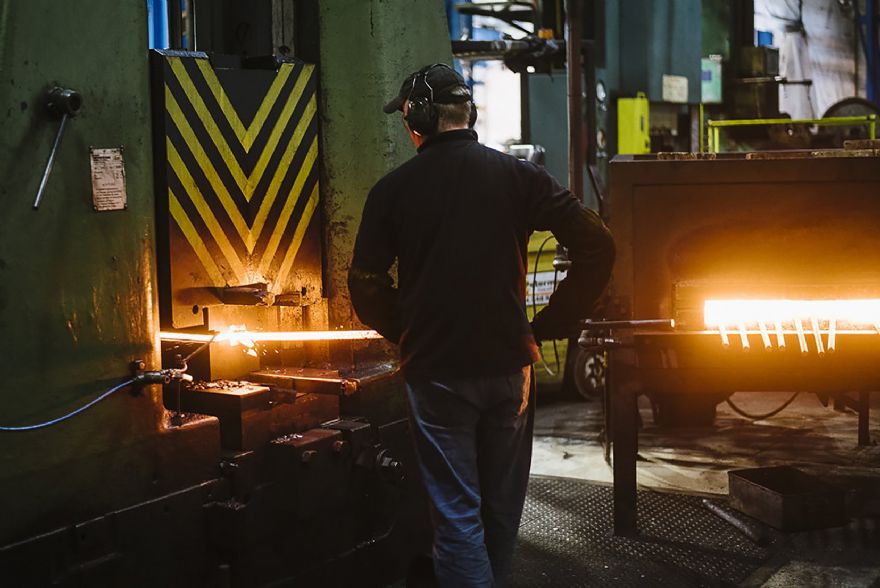
A ‘triple whammy’ of changes is set to see energy costs soar for the downstream manufacturing supply chain, warned the
Confederation of British Metalforming (CBM) earlier today. Representing more than 200 manufacturers of fasteners, forgings, pressings, cold-rolled and sheet metal products, the leading trade association is urging businesses to quickly prepare for a significant rise in non-commodity electricity costs with new Balancing Services Use of System (designed to balance the UK’s electricity system in real time) charges and R110-ET3.
The latter stands for ‘Revenue = Incentives + Innovation + Outputs’ and is Ofgem’s regulatory framework for energy networks, enabling it to generate funding to expand and modernise the electricity transmission network in support of ‘net zero’ goals.
CBM President Stephen Morley said companies will also be hampered by the Government’s Nuclear RAB ‘stealth tax’ that will fundamentally see firms help subsidise the build of Sizewell C. Starting from November, this cost will appear as a levy on electricity bills for most companies, unless you are exempt under the Energy Intensive Industries scheme.
Many CBM members, such as hot forgers, sit outside of this support, despite being very big energy consumers. This is mainly due to their Standard Industrial Classification codes not being included, which is something the organisation is fighting hard to amend.

Mr Morley (pictured left) said: “I am absolutely seething about the changes that will hit our members hard, with some of them set to experience a 100% increase in charges as a result of these changes and the new tax. We already have the highest energy costs in the G7, with average prices that are 50% more than Europe and 120% higher than the USA. I thought Labour’s entire manifesto was aimed at ‘growth’, I just didn’t realise they meant energy prices! So far, the Government has only sought to help ‘Energy Intensive Industry’, which is a select group and doesn’t cover downstream manufacturers who really are the engine room of this country.”
He continued: “The majority of CBM members are not classified under the current scheme, which means they will shoulder the burden of these changes and end up propping up the bigger companies. Effectively a double punch in the financial gut. The Industrial Strategy highlights the potential for further support to 7,000 companies but will require consultation and time to implement.
Time isn’t what a lot of our members have got, who will see their electricity prices rise on 1 October and get even worse when Nuclear RAB (1 November) and R110-ET3 (1 April 2026) come into play. The CBM has been working urgently with
Greenfields Energy Group to educate its members, holding a webinar recently to highlight the issues members will soon be facing.
Final hammer blowThe start of October will see the Balancing Services Use of System (BSUoS) charge rise to a cost of £1.569p p/kWH (up from £1.199p p/kWH in the draft forecast) and this will be followed by the Nuclear RAB charge of £0.345p p/kWH. The latter will be reviewed quarterly, with many estimates expecting it to settle at 0.4p p/kWH. The final hammer blow to manufacturers will arrive on 1 April next year, with the R110-ET3 coming into force. Due to run until 31 March 2031, this charge will rise by an average 100% in the latest forecasts to give the transmission network the funding it needs to modernise.
Liam Conway, founder of Greenfields Energy Group, added: “The figures are frightening, there is no real way of sugar coating it. For example, an SME with a LV4 supply will see an average increase of £9,305 on the R110-ET3 alone. A larger business, say one with a HV4 supply, this will rocket to £128,000!
“Firms who currently have a pass-through electricity contract, where these costs are passed-through as they become known, will see the rise in the BSUoS from 1 October with the big hit coming with R110-ET3 in April 2026. For manufacturers within fixed contracts there is an expectation suppliers may open up contracts and the cost increases will be severe. Regardless of contract timing, I’m afraid to say the increases are coming.”
The CBM is calling on the Government to act now and not in 2027 to avoid massive industrial disruption and the potential for widespread closures. Mr Morley concluded: “Downstream manufacturers need help with extortionate energy costs now and not in the future. Even if the rumours of some form of VAT relief on energy in the budget are true, they will simply be negated by the introduction of these new charges and the ‘Sizewell C’ stealth tax, with industry again footing the bill!
“I warned earlier in the year that we would get to net zero by ‘deindustrialisation’…I just didn’t expect to be proven right so quickly. The Government and Ofgem need to come clean with business and start a wholesale ’root and branch’ review of the energy market before it is too late and the lights go out on industry forever.”